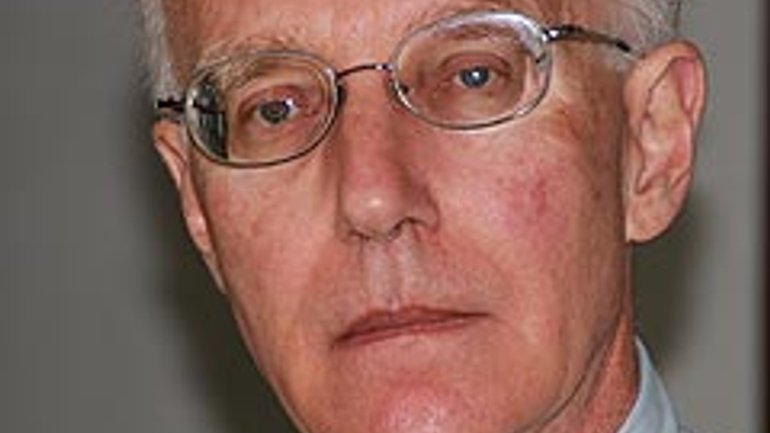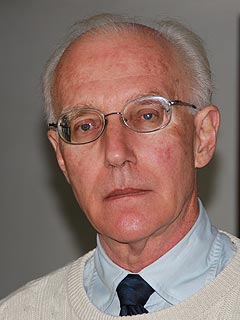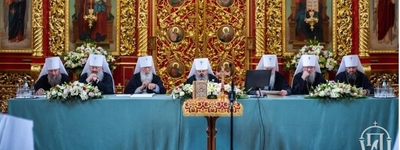Sex and the labor code

 Would it not be enough to say that citizens must be protected from violence and discrimination based on sexual attitudes or conduct?
Would it not be enough to say that citizens must be protected from violence and discrimination based on sexual attitudes or conduct?
Writing in “Foreign Policy” (17 November 2015, carried in Kyiv Post online 18 November 2015) on recent and proposed future amendments to the Ukrainian Labor Code for the protection of certain minority groups, Matthew Schaaf discusses the conflict between LGBT lobbyists and religious groups. Schaaf criticizes a proposal by Patriarch Filaret of the Ukrainian Orthodox Church (Kyivan Patriarchate) to change the language of the amendment from the “internationally accepted” formula “sexual orientation and gender identity” to “attitudes toward sexual relations.” He also notes that the Samopomich party, which originates in the highly religious western part of Ukraine, plans to introduce amendments to the new labor code that do not conflict with religious principles. Schaaf advocates a Ukraine where “LGBT rights and religious freedom are viewed as complementary rather than contradictory.”
It is a noble sentiment, and at first sight not an unrealistic one. After all, civic rights in a liberal state do not conflict with each other, practically by definition: a citizen is free to do what he or she wishes as long as it does not interfere with the rights of other citizens. There is no reason why the right of an “LGBT” citizen to be free of unwarranted state discrimination based on his or her sexual inclinations or activity should interfere with the right of any other citizen to hold, express, and live according to religious beliefs.
The wording of the labor code amendment presents a different problem. It centers on how the law should describe the basis of the forbidden discrimination. The proposed amendment forbids discrimination based on a person’s “sexual orientation and gender identity.” By using the term “sexual orientation,” it assumes that a person is born with an “orientation” independent of biological sex. By using the term “gender identity,” the proposed amendment assumes that a person can have a male, female, or other identity that is, again, independent of biological sex. These assumptions are controversial. By adopting language that reflects these assumptions, the proposed amendment works to normalize the status of persons whose psychological and social self-identification does not coincide with their biological sexual identity – and to make the law reflect that.
The alternative wording proposed by Patriarch Filaret of the UOC (KP) would forbid discrimination based on a person’s “attitude toward sexual relations.” The assumption behind these words is that a person is born male or female and remains as such, but may develop an attitude towards sexual relations that is inconsistent with his or her biological sex. Such an attitude should not be a basis of discrimination. However, this language is vague. It does not specify a homosexual or bisexual “attitude.” At the same time, it is too narrow, for it neglects the status of the transgendered person – which is not merely a matter of “attitude” – as well as the conduct of members of any of these groups. Moreover, the assumption behind this language is that a homosexual or bisexual “attitude” can be changed by individual choice. That view is generally rejected by LGBT activists.
If, as the wording of the first proposed amendment implies, lesbians, gays, bisexuals and transgendered (and the trans-sexual, queer, and other recently discovered groups) are born that way, then they constitute a category comparable to a racial minority, whose members possess immutable traits. As such, they should not suffer discrimination. But if they have exercised a conscious choice, they are somewhat like the adherents of a religion, who freely choose to adhere to certain beliefs, and whose choice is protected by law.
So which are they? And does it matter? Must the law decide this question? And should the law reflect the social category of “gender,” which is mutable, or only the natural category of “sex,” which is not? Since there seems to be no scientific or philosophical consensus on any of these questions, it might be best for the law to be silent.
For is it really necessary to adopt the “internationally accepted” – but ideologically loaded — formula of “sexual orientation and gender identity”? Is it any more necessary to adopt the Ukrainian Orthodox Church’s formula of “attitudes toward sexual relations,” which is at once too vague and too narrow, and also proceeds from a particular understanding of sexuality? Would it not be enough to say that citizens must be protected from violence and discrimination based on sexual attitudes or conduct?
Such wording in the amendment would protect the civil rights of all citizens, while leaving scientific, moral and philosophical questions to be sorted out in the public sphere. It is the legal protection of human rights, after all, that is the purpose of the amendments in the first place. Some derive human rights from divine law, others from natural law. Civil laws enacted to protect human rights should be drafted in harmony with these sources, or at least not in conflict with them – and not as formulations of partisan philosophies.










